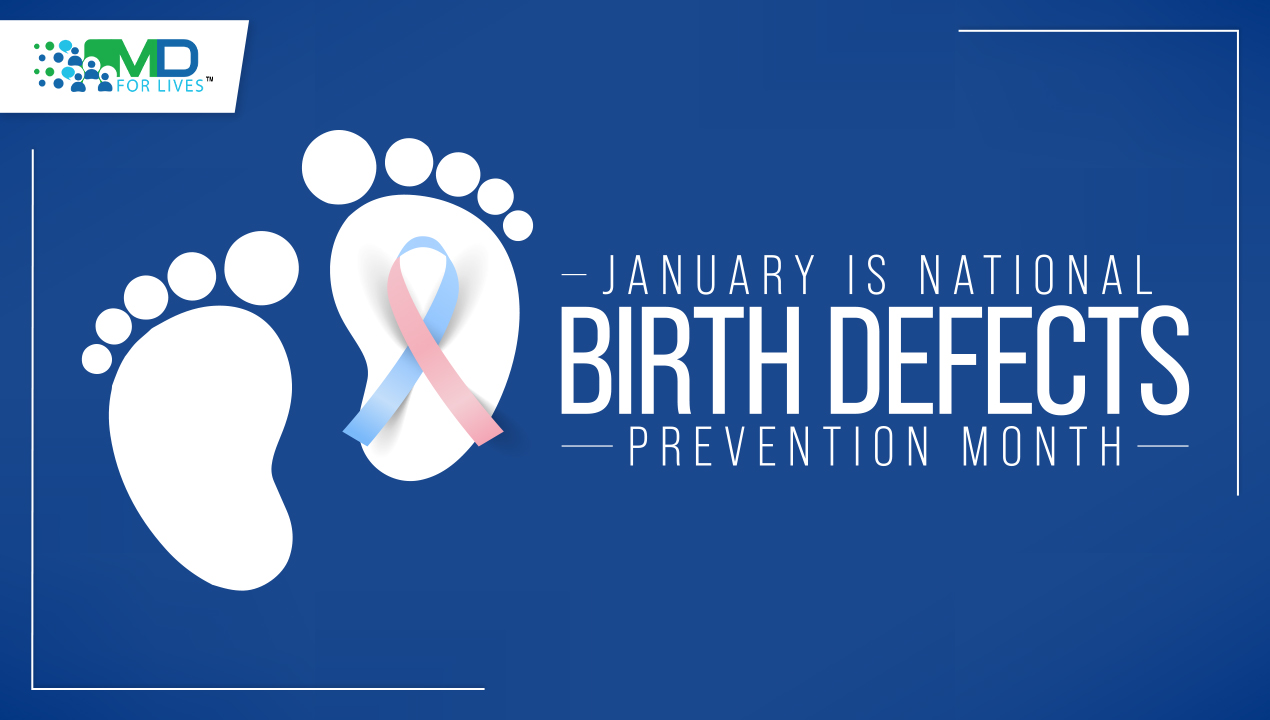From the flutter of tiny kicks to the first sweet coos, the journey of nurturing a child is filled with countless moments of wonder and joy. However, for those living with thalassemia, motherhood can present some unique challenges. This inherited blood disorder that disrupts the body’s ability to produce healthy Red Blood Cells (RBCs), leading to anemia, can significantly impact a woman’s health and raise concerns about their well-being and the development of their fetus. Fortunately, with technological advancements in the healthcare sector and the efforts of obstetricians and hematologists, thalassemic women can embark on the pregnancy journey by overcoming challenges and fear.
As we commemorate World Thalassemia Day, MDForLives would like to share some clinical cum collaborative considerations for obstetricians and hematologists to optimize outcomes for pregnancy with thalassemia. Keep reading!
ARRANGE A COLLABORATIVE PRE-CONCEPTIONAL COUNSELING (A MUST!)
Obstetricians, the moment a case – where a woman is dealing with thalassemia and pregnancy comes to your desk, inform a hematologist and conduct a pre-conceptional counseling session.
The aim of this collaborative pre-conceptional counseling for thalassemia in pregnant women is to:
- Adjust ICT Regimes: Thalassemia patients are iron deficient. Therefore, obstetricians must consult with hematologists to adjust their patients’ Iron Chelation Therapy (ICT) regimes, which remove excess iron buildup from regular blood transfusions and implement iron supplementation strategies. These steps are crucial for thalassemic women’s fetal development and overall maternal well-being.
- Improve Pre-existing Health Conditions: The chances of miscarriage, Intrauterine Growth Restriction (IUGR), and other complications during delivery are high in pregnancy with thalassemia. Therefore, an obstetrician should contact a hematologist and thoroughly discuss these potential risks to deliver tailored prenatal care for women battling thalassemia and pregnancy.
- Provide Genetic Counseling: Obstetricians and hematologists must arrange genetic counseling sessions with couples. These sessions provide accurate information about the risk of transmitting thalassemia to offspring and facilitate discussions regarding prenatal testing options such as – Chorionic Villus Sampling (CVS) and Amniocentesis. This helps couples make informed decisions about their reproductive choices.
PROVIDE OPTIMAL COLLABORATIVE CARE DURING PREGNANCY
In case of thalassemia and pregnancy, a woman needs close and meticulous monitoring throughout her three trimesters. Therefore, obstetricians and hematologists must collaborate to ensure that the mother and the fetus are healthy.
This collaborative effort involves:
- Frequent Blood Tests: Monitoring hemoglobin levels, iron stores, and blood counts monthly will help obstetricians and hematologists adjust blood transfusion regimens and iron supplements. This will in return optimize fetal oxygen delivery and address potential deficiencies.
- Fetal Monitoring: Prescribing ultrasonography more frequently is essential to closely observe the fetus’ growth. This will help obstetricians and hematologists detect potential complications in case of thalassemia in pregnant women, like Intrauterine Growth Restriction (IUGR).

- Fetal Blood Sampling: Thalassemia in pregnancy can lead to a high risk of fetus complications. Therefore, obstetricians in collaboration with hematologists, must prescribe fetal blood sampling techniques like cordocentesis. This allows them to directly assess a fetus’s hemoglobin levels and opt for potential interventions.
- Stem Cell Transplant: Based on the vitals of the thalassemic woman, obstetricians and hematologists can suggest a stem cell transplant, which can significantly improve pregnancy outcomes by eliminating the need for chronic blood transfusions and potentially improving overall health.
FINAL TAKE: COLLABORATION IS THE KEY!
“Thalassemia and pregnancy can’t go hand in hand” – to dispel this myth, all that’s needed is ‘Collaboration.’ Obstetricians and hematologists must understand the specific considerations for each type of thalassemia and implement optimal collaborative clinic strategies to ensure the best possible outcomes for pregnant women.
Physicians willing to contribute to the growth of the healthcare sector can register with MDForLives today and participate in paid surveys! You may also contribute to our knowledge pool by sharing blogs, articles, or case studies at collaboration@mdforlives.com.
REFERENCES:
- Pregnancy & Thalassemia
www.nhlbi.nih.gov - Pregnancy in Women with Thalassemia: Challenges and Solutions
www.ncbi.nlm.nih.gov - Fetal Blood Sampling
www.hopkinsmedicine.org - Amniocentesis and Chorionic Villus Sampling
www.rcog.org.uk

The creative force behind the keyboard, Pallabi crafts narratives of healthcare wonders and research marvels. As a seasoned professional blogger, she ventures to unearth the riches of medical innovation, weaving them into insightful stories that educate.






